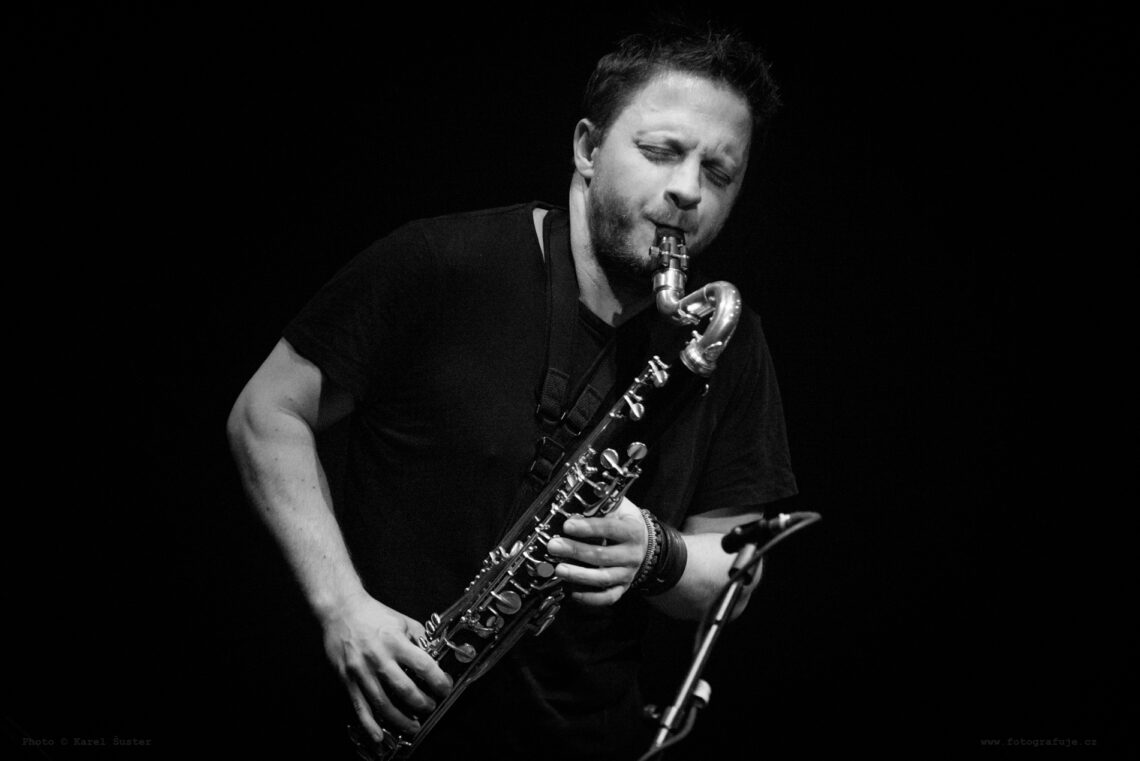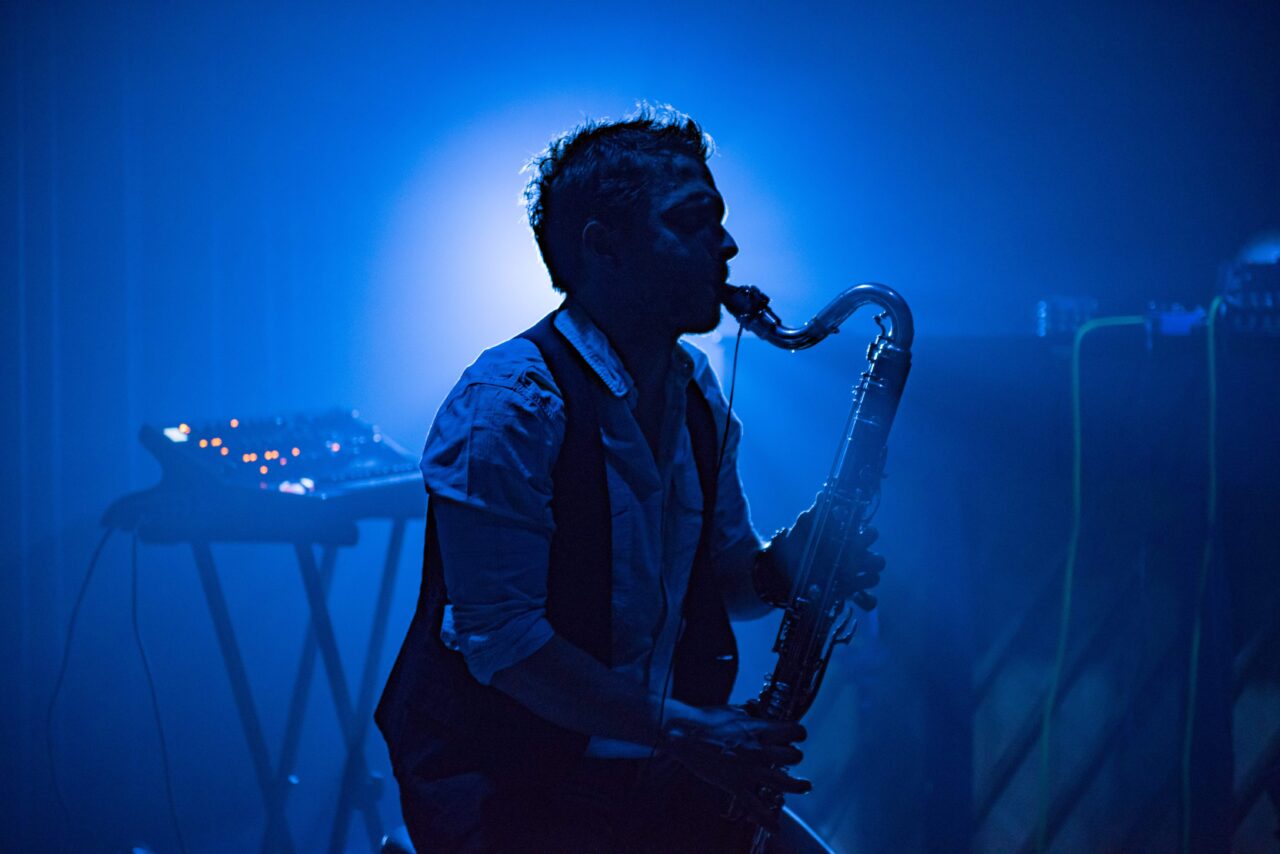Gareth Davis will be featured in our next concert from the b minor cycle. In it, he will present compositions separated by 60 years
The series of concerts of contemporary classical music under the name b minor continues in the fall. Already on September 7, we will welcome another musician to Malý Berlín. Gareth Davis prepared interesting stories for the listeners, which he will play on the clarinet. It will be a journey through time full of memories, but also current topics. He reveals more in the interview.
We will see you soon in Malý Berlín. What are you most looking forward to?
I’ve done some great shows in Slovakia, but I’ve not been to Trnava. Being able to play in different places is something that I am always looking forward to. I am mostly playing music from the last 60 – 70 years which is, for me, a unique experience with the audience. The music itself is often less known, so being able to introduce it, share the experience and tell a story is fantastic.
Your path to clarinets was said to be quite interesting. Can you tell us more?
I now play only the low clarinets, and have done for quite a long time. My own taste in music is quite eclectic, and I’ve always had just as much interest in rock, electronic music and improvisation as I have in classical and contemporary classical. I do not know if my path was more interesting than other people, but maybe one thing that has been interesting for me is constantly trying to extend and challenge myself. Playing different or unexpected kinds of music, finding different ways to fit the instrument in a specific combination.

How has your relationship with music evolved over the course of your life?
I have been into many kinds of music from a young age. The first orchestra concert I remember going to was the music of Xenakis. I was probably around 7 years old. I’m not sure if there was a conscious choice in that or my parents simply decided it fit that week, but for me it created the idea of music being so many things from the start.
Over time I have found a way to play in things that I like, and this is sometimes a long process. Knowing when to wait can be difficult but also when you reach the point you have something you know you want to say and communicate with the audience, for me, the process makes much more sense. Contemporary music can seem abstract or ‘difficult’ but perhaps a lot of this is down to the ideas that are presented with it. Every day we hear sounds that, without context, would seem to make no sense. The context of our daily life gives them a narrative and this can make things thrilling. So perhaps my relationship is one of trying to find constantly new ways to tell stories.
Will you come to Slovakia alone or with the support of some musicians?
The two pieces I am playing are for solo bass clarinet and electronics. So I will be the only person playing an instrument, but I will be joined by the Czech sound designer Mikuláš Mrva. Mikuláš wrote the software patch to perform the pieces. A software patch is a series of instructions that tells the programme what to do at certain times. In the past, instead of using electronics, large analogue devices were used. For example, to repeat a sound in a concert, there would need to be a microphone recording what I play to tape, this would be repeated a few seconds later creating either a loop or kind of echo effect. Now there is software to do this, but in more complex pieces the software needs to be ‘told’ what to do. So while I am playing the bass clarinet live, Mikuláš is taking my sound, changing it, stretching it, cutting it, mixing it and sending it to different speakers to create a multi layer texture. The single instrument can, because of this, become a kind of ensemble.

Can you please introduce the program of the concert?
I will play two pieces. Solo, by Stockhausen, was written in 1966 while Theatre of the Mind by Roland Dahinden, was written in 2021.
The piece by Stockhausen explores how a single instrument can become a stack of sounds, each layer slightly changed to create a sort of landscape.
The work by Dahinden is far more narrative. I premiered it at the festival in Ostrava in 2021 and it was written as a response to a huge number of people who were struggling with issues of mental health during the pandemic. In the Netherlands (I live in Amsterdam), the number of children having growing struggles was enormous. What Roland explores in this piece is the sensation of being ‘locked in’. The way in which thoughts start to circle in the mind, recreating, repeating, always evolving but still stuck. Sense comes and goes, sometimes fixated, other times a foggy blur.
What exactly can viewers (and listeners) expect?
These two pieces have nearly 60 years between them. Stockhausen still has a name connected to the contemporary yet this piece is older than a lot of audiences by quite a few years. Listeners can hear how this music can be looked at again, how a single instrument can become so many layers of sound. At the same time they can listen to a piece which has the same basic use of technology but in a very different way. Small sounds and objects are also used and become much bigger, creating a kind of ambient soundscape of memories.
Ján Janočko
Photo: Gareth Davis Archive
